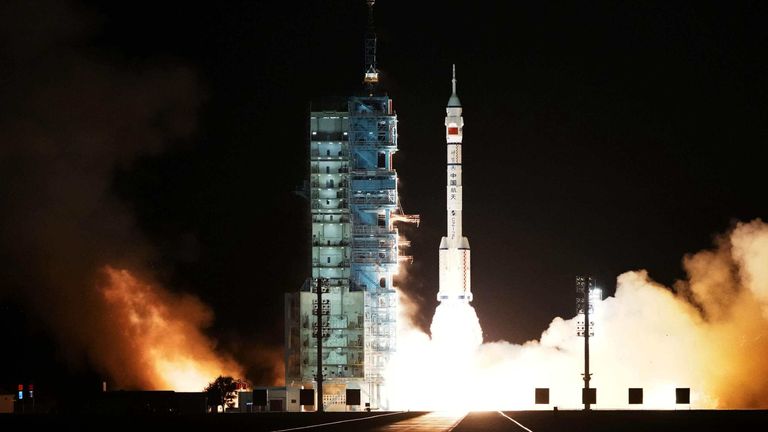Three Chinese astronauts have successfully returned to Earth from their nation’s space station after their capsule was damaged.
The team deployed a red and white striped parachute as they descended, before landing at a remote site in the Gobi Desert in Asia on Friday.
The astronauts – Chen Dong, Chen Zhongrui and Wang Jie – had been due to return on 5 November to end their six-month rotation at the Tiangong space station.
However, their journey back was delayed by nine days because the Shenzhou-20 return capsule they were due to travel in was found to have tiny cracks.
These were most likely caused by the impact of space debris hitting the craft, China’s space agency said.
There are millions of pieces of mostly tiny particles that circle the Earth at speeds faster than a bullet.
They can come from launches and collisions and pose a risk to satellites, space stations and the astronauts who operate outside them.
With the Shenzhou-20 out of action, the crew – who travelled to the space station in April – used a Shenzhou-21 craft instead, which had brought a three-person replacement crew to the station.
The Chinese space agency said the stranded taikonauts – the Chinese word for astronauts – had remained in good condition throughout.
The first module of the Tiangong, which means “Heavenly Palace”, was launched by the Chinese state in 2021.
It is smaller than the International Space Station, from which Beijing is blocked, due to US national security concerns.
China’s space programme has developed steadily since 2003.
Read more:
NASA cancels space launch
Jeff Bezos’s rocket lands on Earth
In a long term plan to advance its orbital capabilities, China plans to land a person on the moon by 2030 and has already explored Mars with a robotic rover.
The Asian nation’s latest space mission brought four mice to study how weightlessness and confinement would affect them.
An engineer from the Chinese Academy of Sciences said the study will help master key technologies for breeding and monitoring small mammals in space.


